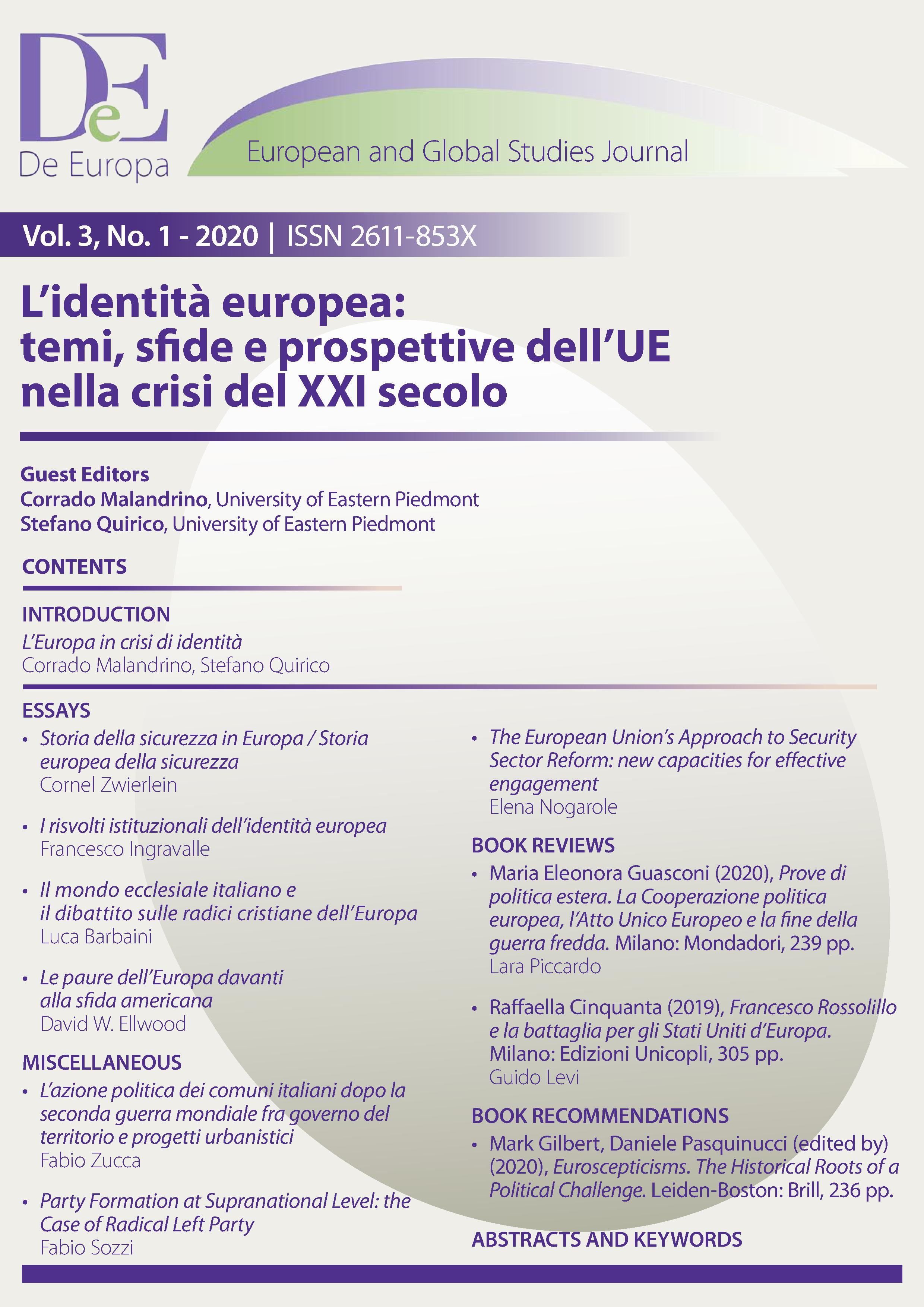I risvolti istituzionali dell’identità europea
DOI:
https://doi.org/10.13135/2611-853X/4397Abstract
L’identità europea è un’identità istituzionale, fatta di norme pattuite dagli Stati membri che sono i concreti soggetti istituenti dell’Unione. L’Unione europea, attraverso l’uguaglianza giuridica dei suoi Stati membri, dà voce a realtà economiche disuguali ed è basata sull’azione di istituzioni che si differenziano fra loro per logiche di lavoro. Ne consegue un sistema che risulta da un intreccio di accordi in cui è fondamentale la procedura che crea il sistema stesso e la base giuridica uguale per i rapporti fra attori disuguali, in quanto salda logiche di lavoro istituzionale disuguali. In quanto identità giuridico-istituzionale procedurale, l’Unione europea è un gradino nella scala dell’integrazione economica e giuridica del mondo.
Parole-chiave: identità, norme, procedure, integrazione, sistema
European identity is an institutional identity, made up of rules agreed by the member States which are the concrete founders of the Union. The European Union, through the legal equality of its members States, gives voice to different economic realities and it is based on the action of institutions distinguishing each other for work logic. Consequently, we have a system that results from a intertwining of agreements in which the procedure that creates the system itself and the equal legal basis for relations between unequals actors is fundamental, since it welds unequal institutional work logics. As a procedural legal-institutional identity, the European Union is a step in the scale of the legal and economic integration of the world.
Keywords: Identity, Rules, Procedure, Integration, System




 The journal has been approved for inclusion in DOAJ. The DOAJ listing of the journal is available at
The journal has been approved for inclusion in DOAJ. The DOAJ listing of the journal is available at 

